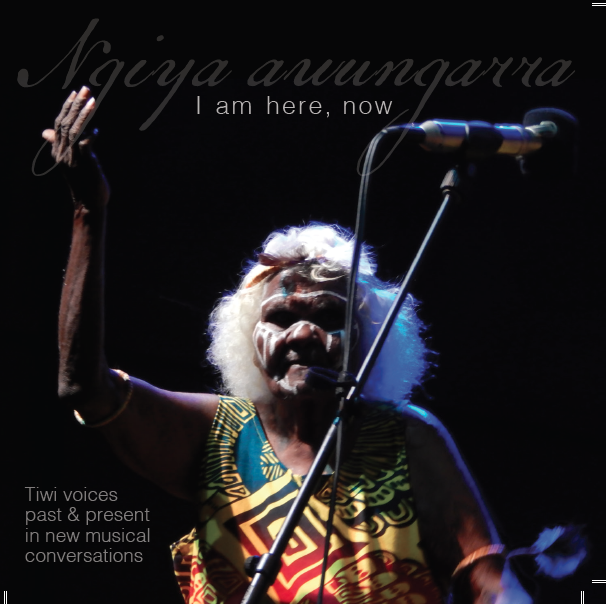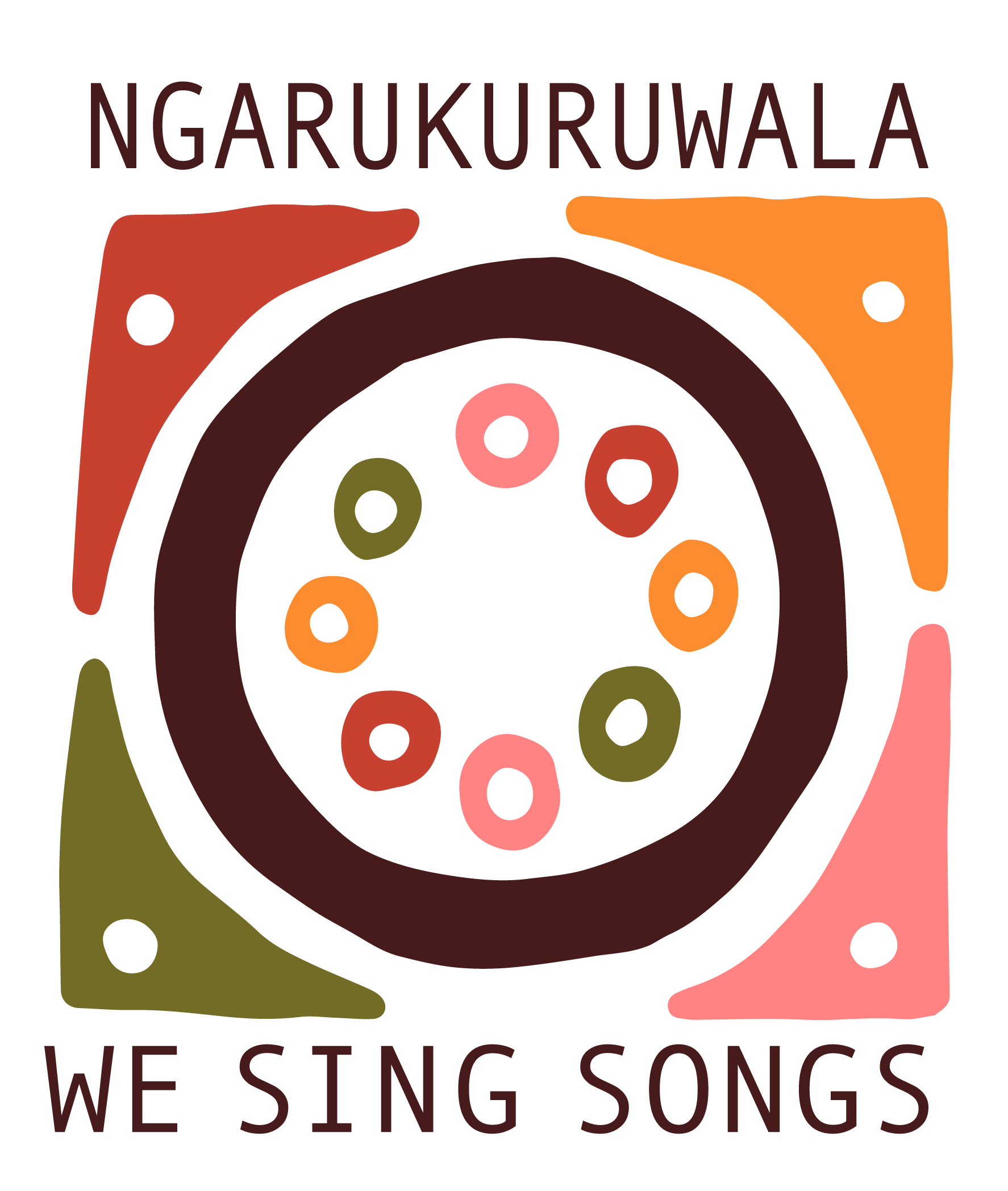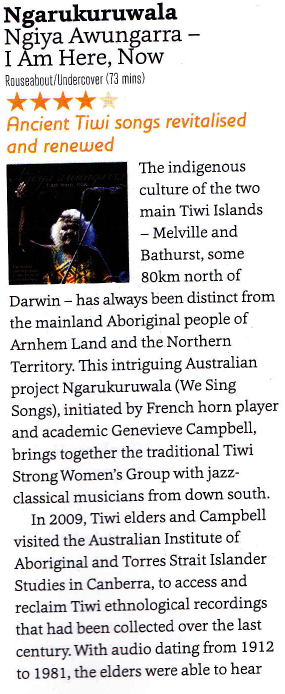Ethnographic recordings of Tiwi song material, made between 1912 and 1981, were repatriated to the Tiwi community from the Australian Institute for Aboriginal and Torres Strait Islander Studies, Canberra in 2010. This was a moving experience for Tiwi Elders as they heard the recorded voices of great-grandfathers, parents and even their younger selves, for the first time. This work features selected recordings from that archive in a series of ‘duets’ between the ancestor and current musician/s. A defining feature of Tiwi music is that it has always been contemporary. Tiwi song texts use the first person and present tense, placing each song ‘now’, every time it is heard, so when the ancestor sings, s/he sings ‘now’.
Each new track was recorded and mixed with an old recording, resulting in a contemporary re-engagement with the song, the (deceased) singer and the recording itself. The songs were chosen for their musical and poetic quality and cultural, emotional and historical significance to the Elders.
A few examples:
There were no rules – each musician reacted to what they heard and felt in the old recording, its voice and its poetry. Some are the result of spontaneous ideas that happened on the day, others loosely arranged then extemporized performances done in one or two takes, and some are intricately produced aural soundscapes.
The result is therefore multi-stylistic, with the old recording the catalyst for the new piece’s ‘feel’. Knowing the part of the day each song was first performed, we have arranged the CD with the songs taking the listener across a day, with sounds of the Tiwi bush from dawn to dusk – where the songs came from – and the sounds of the archives – where they were preserved – threading it all together.
– Genevieve Campbell

NGIYA AWUNGARRA – I AM HERE NOW.
Released in November 2016 (Rouseabout Records).
Review by John Shand
One of the wonders of art is its immediacy. One stares at a painting from 500 years ago or five years ago with the same eyes; one listens to Bach or Miles Davis with the same ears. This is why the current fad in our theatrical circles of feeling obliged to make classic plays “relevant” is so infuriating: they already are relevant. That is why they are classics. This wonderful project is a marrying of eras and cultures, of traditional material and non-traditional approaches, and it has been realised with such reverence and love that it is transformative even while it preserves the songs of the Tiwi people.
Many of the songs are archival recordings from between 1928 and 1975, to which instrumental textures have been added, much as one might add earrings to ears or shine to shoes: they are still the same ears or shoes, they just glisten more. The songs tend to be gentle, with lilting melodies, and a booklet carries translations of the lyrics, some of which stop you dead in your tracks with the wonder of their observations, sentiments or philosophies. God is sitting in the bush, for instance, a 1972 recording featuring the voice of Tungwarinawayi Daniel Paujimi, has the lines “God is sitting there in the bush / is part of the bush.”
Besides the archival recordings, the voices of the Tiwi Strong Women’s Group are heard, alongside a collection of high-calibre classical and jazz musicians under the direction of horn-player Genevieve Campbell. The upshot is a triumph however you look at it: conceptually, artistically, morally and in terms of enlightenment. A truly beautiful project.



